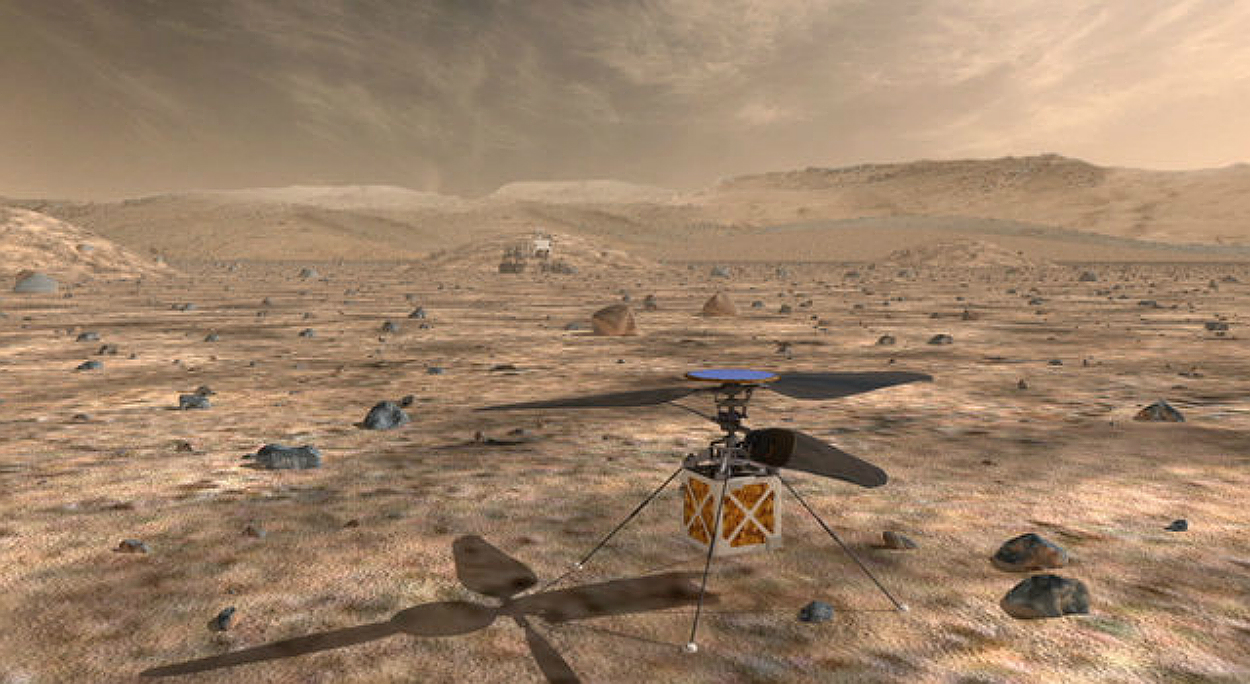Is it possible to fly on Mars?
Of course, it’s possible to fly to Mars – but how about on Mars? The red planet’s atmosphere is significantly thinner than Earth’s. Atmospheric pressure at Mars’s surface is 0.00636 bar, which is one-hundred-fiftieth of the pressure at Earth’s surface. For a heavier-than-air aircraft to take off, it needs lift. It’s difficult to generate enough lift in such a thin atmosphere – but engineers at NASA’s JPL have apparently done it.
In any case, on NASA’s Mars 2020 rover mission, they want to include a small helicopter that could fly autonomously there at a height of up to five meters (sixteen feet). For comparison: this problem hasn’t been solved yet on Earth. The air pressure at Mars’s surface corresponds to the pressure in the Earth’s atmosphere at an altitude of 35 kilometers (22 miles) – and no helicopter has been able to fly that high yet.
JPL’s Mars helicopter weighs approximately 1.8 kilograms (4 pounds). It has dual two-blade rotors that rotate 2,400 times per minute, that is, 40 times per second. That is approximately ten times faster than Earth helicopters. On Mars, it should be able to perform a total of five flights of maximum 90 seconds long while photographing the surface, with each flight taking it farther away from the rover. Solar cells would recharge the helicopter’s batteries, which the helicopter needs not only for flying, but also for heating so that its components don’t freeze at night.
The first model is being used initially only to demonstrate the technology. It can take images with the quality of a smartphone photograph, but it doesn’t have any other instruments. Current plans are to use the helicopter to explore large parts of the Mars surface only during later missions (and if it proves successful). It would be an optimal supplement to the rover, because the land-bound rover can carry significantly more instruments but is very limited in range.
